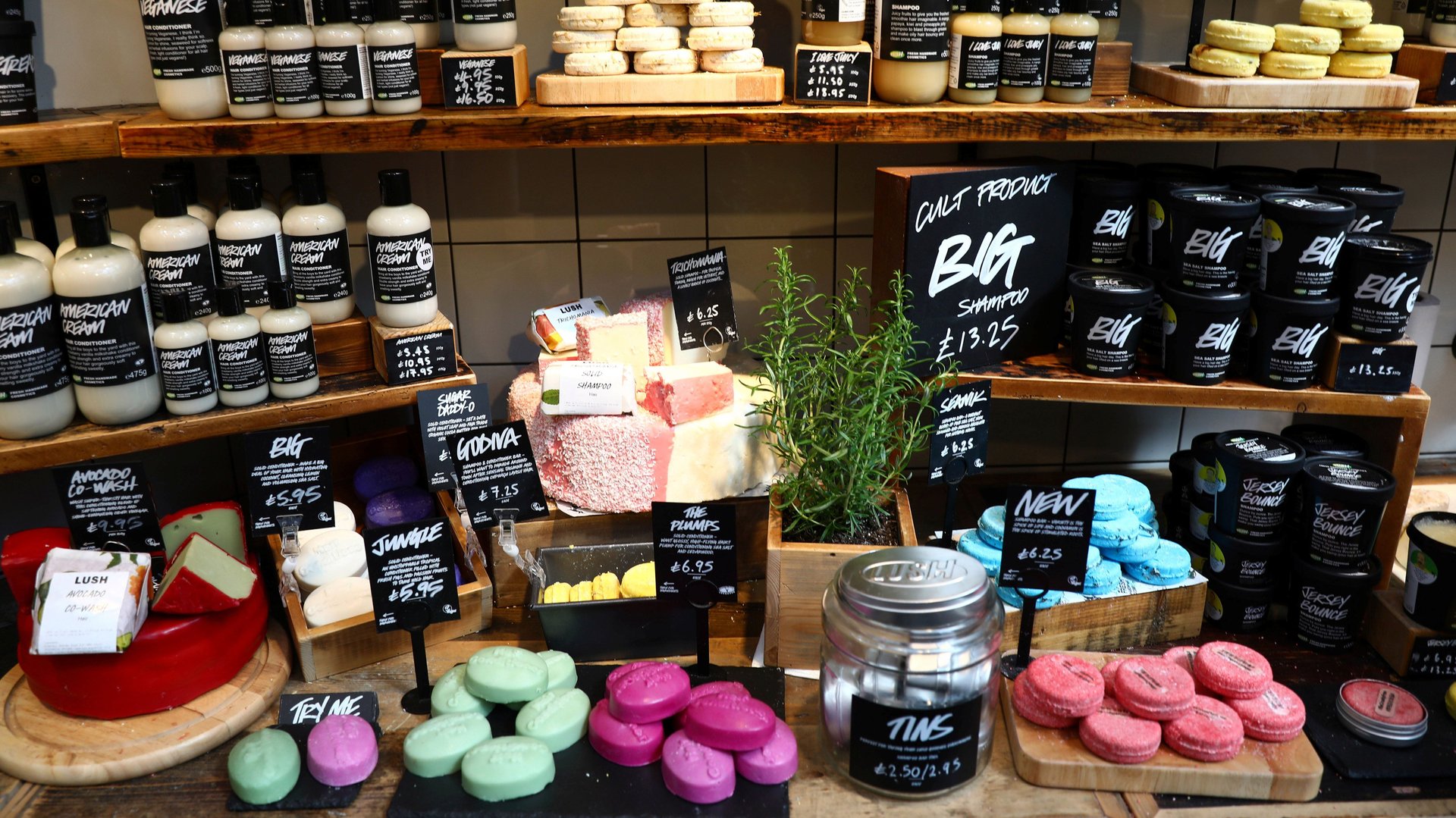Lush stands by its controversial “Spy Cops” UK campaign
Lush is in hot water for its latest campaign against police corruption.


Lush is in hot water for its latest campaign against police corruption.
The British cosmetics company joined forces with the campaign group Police Spies Out of Lives to raise awareness of an ongoing undercover-policing scandal, where British police officers infiltrated the lives and homes of activists. But many have accused Lush of being anti-police.
In 2011, extensive reporting by The Guardian revealed that a number of undercover police officers entered into intimate relationships with members of UK activists groups they were deployed to infiltrate. The police officers were part of the now-defunct Special Demonstration Squad (SDS), an undercover police unit. Some of these police officers lived with their “partners” for several years, and a few even went on to have children with them. The activists were not told of the police officers’ real identities. Once their assignments were over, the police officers often vanished without a trace.
“I know I lived with someone for two years who I believed to be my long-time partner who was actually a member of the SDS,” says Andrea*, one of the women deceived by an undercover police officer and campaigner for Police Spies Out of Lives. She describes her experience as “state-sponsored abuse.”
The police officers were also accused of monitoring MPs and trade unions, and using dead children’s names for their covert identities. These allegations led to the launch of a major public inquiry in 2015. While there has yet to be any convictions, the inquiry revealed that the police had infiltrated more than 1,000 political groups since 1968. In 2015, the Metropolitan Police, London’s regional police force, apologized to the woman deceived into relationships with undercover officers.
However, in March this year, campaigners walked out of the public inquiry proceedings after the chairman granted anonymity to former undercover police officers. Police requested secrecy to protect the undercover officers who infiltrated groups.
Lush has a long history of working with activists to highlight on-going scandals and left-wing campaigns. The cosmetics company decided to work with Police Spies Out of Lives to bring more attention to this particular scandal, via a campaign dubbed “Spy Cops.” The campaign called on Sajid Javid, the home secretary appointed at the end of April 2018, to add a panel of experts to the inquiry, extend the inquiry’s remit to include Scotland, disclose the cover names of the officers and the names of the groups they spied on, and finally, release the files the police has on the victims.
“There are files that exist on me, but I have no access to them whatsoever. In order to move forward with some kind of healing, we need to have the truth,” Andrea says.
Across the country, Lush’s shop windows have been decorated with police tape, saying: “Police have crossed the line.” A split image of a man, one half with a police helmet on, another without the helmet, fronts the campaign. The image has the tagline “Paid to lie.” Lush also released a video claiming activists have been “spied on for taking a stand.”
There was immediate backlash to the campaign, with more than 30 complaints submitted to the Advertising Standards Authority. Che Donald, vice-chairman of the Police Federation of England and Wales, described the campaign as “very poorly thought out,” while Christine Fulton, who co-founded the charity Care Of Police Survivors, which supports family of police officers killed on duty, tweeted she was “appalled” by Lush’s campaign.
Hilary Jones, Lush’s ethical director, says the company was “shocked” by the criticism leveled at the campaign. “Women have had their lives invaded by people pretending to be someone else,” she says. Jones doesn’t think the scandal boils down to a few rogue officers; she describes it as an institutional problem. More importantly, though Jones accepts that undercover policing is an important tactic used in uncovering abuses, that power, she says, should never be wielded against citizens challenging their government.
“This is not an anti-police campaign,” Andrea adds. “This is targeted at the spy cops unit, which were corrupt.”
Home secretary Javid also criticized the Lush campaign. “Never thought I would see a mainstream British retailer running a public advertising campaign against our hardworking police,” he tweeted last week. Andrea says she and other victims have previously reached out to Javid and were ignored. She says it was quite “galling” to then see Javid tweet about the campaign. “It’s the first time he’s bothered to speak publicly about it and it has not been on the side of the victim.”
Andrea says campaigners had also reached out to the former home secretary, Amber Rudd. In April, victims of undercover policing delivered a letter to Rudd calling on her to intervene in the inquiry. The only response they got was a one-line email sent by an office administrator.
In some cases, Lush has bowed to pressure and taken down campaign material from some shops to protect its employees. But more broadly, they refuse to end the campaign entirely. “We’re not going to abandon the victims in this,” Jones says.
*Name has been changed to protect people’s identities.